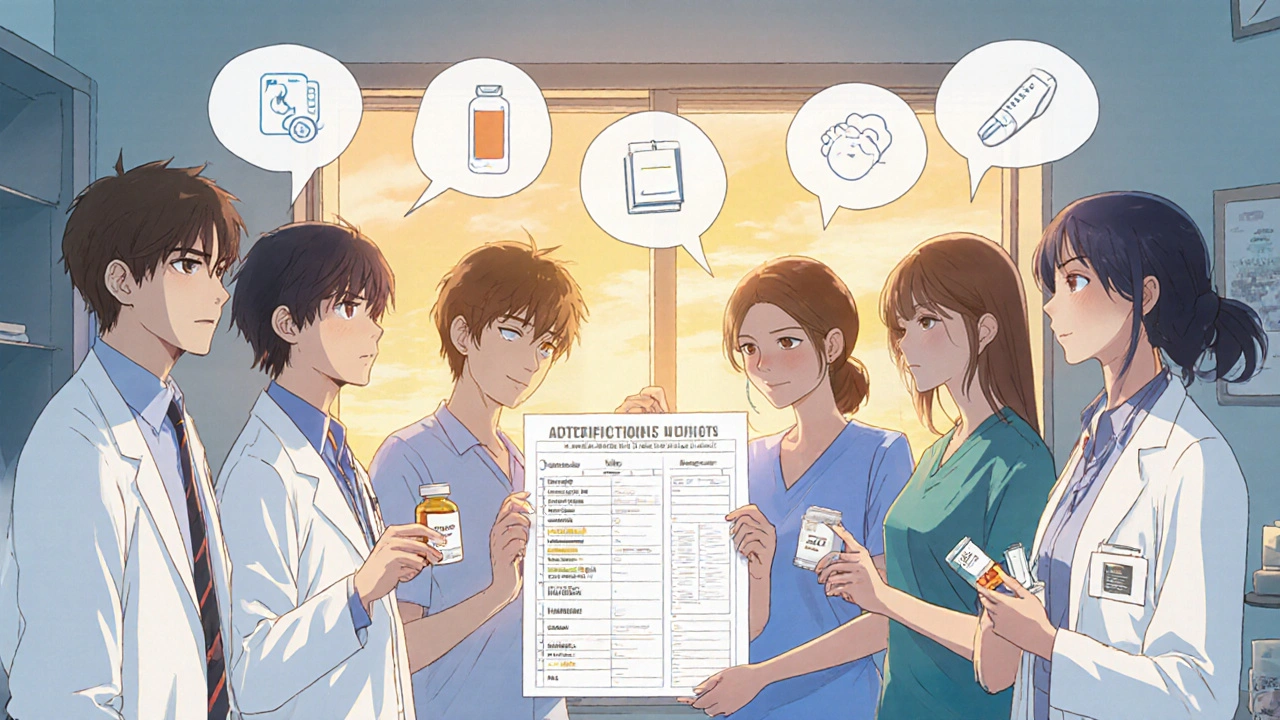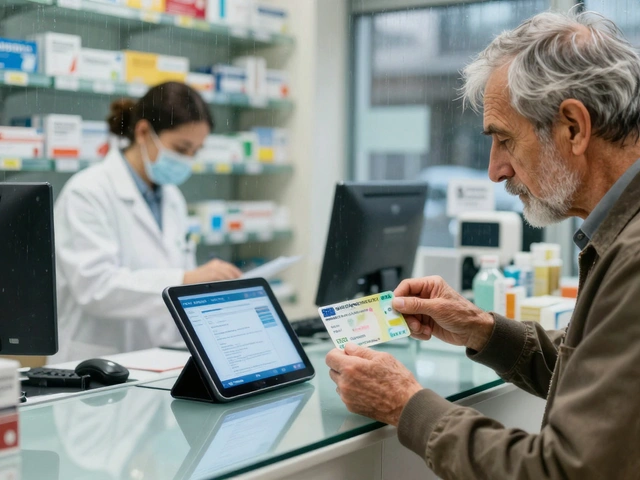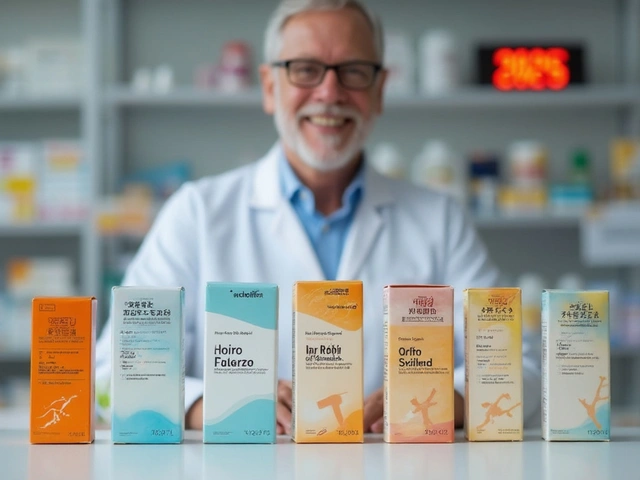If you or someone you care for has trouble swallowing pills, you’re not alone. About 1 in 7 older adults living at home struggle with this, and in nursing homes, it’s nearly 7 out of 10. Yet, skipping or crushing pills because they’re hard to swallow can be dangerous - and it’s happening far too often. A 2023 study found that nearly half of all medication changes made to help people swallow - like crushing tablets or opening capsules - were unsafe. Some led to overdose risks. Others made the medicine less effective. The good news? There are real, safe ways to keep taking your meds without risking your health.
Don’t Crush or Open Pills Without Checking First
Crushing a pill or opening a capsule might seem like the easiest fix, but it’s often the riskiest. Many medications are designed to release slowly over time. Crush them, and you get a full dose all at once - which can cause dizziness, low blood pressure, or even overdose. Extended-release opioids, blood thinners, and some antidepressants are especially dangerous when altered. Coated pills, like enteric-coated aspirin, are made to bypass the stomach. Crush them, and they can irritate your stomach lining or break down too early.
Even if a pill looks easy to crush, don’t assume it’s safe. A 2020 UK study found that doctors and nurses often didn’t check whether a medication could be altered before modifying it. Pharmacists are the best people to ask. Bring your list of meds to your pharmacist and ask: "Can this be crushed, opened, or mixed with food?" If they say no, ask for an alternative.
Ask for Easier-to-Swallow Forms
Not all pills are created equal. Some are smaller, smoother, or shaped to glide down more easily. Torpedo-shaped capsules and coated tablets are often easier than large, round tablets. Ask your doctor or pharmacist if your medicine comes in a different form:
- Liquids - Often the safest option. No swallowing required.
- Orodispersible tablets - These dissolve on your tongue in seconds. No water needed.
- Effervescent tablets - Dissolve in water to make a drinkable solution.
- Topical patches or gels - For pain, hormones, or nicotine, these bypass the mouth entirely.
- Rectal suppositories - Used for nausea, fever, or certain heart meds when oral intake isn’t possible.
But here’s the catch: only 37% of essential medications have these alternatives available. That’s why you need to ask early. If your current medicine doesn’t have a safe alternative, your doctor may be able to switch you to a similar drug that does. For example, instead of a large extended-release tablet, you might switch to a liquid version of the same active ingredient.
Use the Lean Forward Method for Capsules
If you’re stuck with a capsule you can’t swallow, try the lean forward method. It’s simple, proven, and works for most people. Here’s how:
- Place the capsule on your tongue.
- Take a medium sip of water - not too little, not too much.
- Before swallowing, bend your head forward slightly, like you’re looking at your toes.
- Swallow while keeping your head tilted forward.
This trick works because tilting your head forward opens up the throat passage and helps the capsule float down naturally. A clinical study from the University of Michigan found that people who used this method saw up to a 75% improvement in their ability to swallow capsules - even those who had struggled for years.
Try it with water first. Once you get the hang of it, you can use it with thicker liquids like applesauce or pudding if your doctor approves.

Use Thickened Liquids - But Only If You’re at Risk of Aspiration
If you cough, choke, or feel like food or liquid goes down the wrong way, you might be at risk for aspiration - when stuff enters your lungs. That’s serious. For these cases, speech therapists recommend thickened liquids. They don’t spill as easily and give your throat more time to react.
But here’s the twist: if you’re at risk of choking - not aspiration - thinner liquids are actually better. Thick liquids can stick in your mouth and make swallowing harder. So don’t guess. Ask a speech-language pathologist to assess your swallowing. They’ll tell you whether you need thin, nectar-thick, or honey-thick liquids.
Many pharmacies sell thickening powders that you can add to water, juice, or even medicine mixtures. Always follow the label instructions. Too thick, and you’ll gag. Too thin, and you risk aspiration.
Work With Your Care Team - It Takes a Village
Managing swallowing problems isn’t just about you. It needs a team: your doctor, pharmacist, nurse, and a speech therapist. Yet, too often, no one talks to each other. Your doctor prescribes a pill. Your nurse gives it to you crushed. Your pharmacist never gets asked. That’s how errors happen.
Here’s what you can do:
- Ask your doctor: "Do I really need every pill?" Some meds can be stopped safely.
- Request a speech therapy evaluation. They’re trained to test swallowing and recommend safe techniques.
- Keep a list of all your meds - including doses and times - and bring it to every appointment.
- Ask your pharmacist: "Is there a better form of this medicine?" They know what’s available.
Pharmacists are now being trained to flag patients with dysphagia in electronic health records. If your doctor knows you have trouble swallowing, they should be alerted before prescribing a hard-to-swallow pill. But until that system is universal, you have to be your own advocate.
Try New Technologies - Like Dissolvable Films
There’s exciting progress in medicine design. Companies are now making thin, dissolvable films that stick to your cheek or under your tongue. They don’t need water. You don’t swallow them. They just dissolve in seconds. One brand, called VersaFilm, has shown 85% adherence rates in patients with moderate swallowing problems.
These aren’t available for every drug yet - but they’re growing fast. Ask your pharmacist if any of your medicines are available as a dissolvable film. If not, ask if they’re working on it. Patient demand is driving change. The global market for dysphagia-friendly meds is expected to hit $2.9 billion by 2029, and that’s because people are speaking up.

What to Do If You’re Giving Medicine to a Child
Parents often struggle with kids who refuse pills. Here’s what works:
- Have your child take a few sips of milk before the medicine - it makes the mouth slippery.
- Place the pill on the tongue, then have them fill their mouth with water, puff out their cheeks, and swallow.
- Use a syringe to give liquid meds slowly, aiming toward the inside of the cheek, not the back of the throat.
- Never mix medicine into a full bottle of milk or juice. If they don’t drink it all, they won’t get the full dose.
For toddlers, some pediatricians recommend using a pacifier dipped in medicine - it tricks the mouth into accepting it without gagging.
When You Must Use Food - Do It Right
If your pharmacist says it’s safe to mix medicine with food, use applesauce, yogurt, or pudding. Avoid grapefruit juice - it can interfere with dozens of medications. Don’t use hot foods - heat can break down some drugs.
Always give the full dose in one bite. Don’t save half for later. And always follow it with a sip of water to make sure everything goes down.
And never use a feeding tube without guidance. If you’re using one, flush with at least 10ml of water between each medication. Some drugs stick to the tube or react with each other. Always give them one at a time.
Keep Track and Speak Up
Swallowing problems don’t always show up on tests. Sometimes, people just stop taking their meds because they’re embarrassed or frustrated. That’s the biggest danger.
Write down:
- When you have trouble swallowing
- Which pills are hardest
- What methods helped (or didn’t)
Bring this to your next appointment. Your doctor can’t fix what they don’t know. And remember - you’re not being difficult. You’re being smart. Asking for help with swallowing isn’t weakness. It’s how you stay healthy.
Can I crush my pills if I can’t swallow them?
Only if your pharmacist or doctor says it’s safe. Many pills are designed to release slowly or protect your stomach. Crushing them can cause overdose, reduce effectiveness, or cause side effects. Never crush without checking first.
What’s the safest way to take a capsule if I keep choking?
Try the lean forward method: place the capsule on your tongue, take a medium sip of water, tilt your head forward slightly, then swallow. This opens your throat and helps the capsule slide down. Studies show it works for up to 75% of people who struggle.
Are liquid medicines better than pills for swallowing problems?
Yes - if they’re available. Liquids don’t require swallowing, so they’re often the safest option. But not all medicines come in liquid form. Ask your pharmacist if a liquid version exists for your medication. If not, ask if another similar drug does.
Why does my doctor keep prescribing hard-to-swallow pills?
Doctors aren’t always aware of swallowing problems unless you tell them. Many assume patients can swallow pills. If you have trouble, say so clearly. Ask for a speech therapy evaluation. Your doctor can then choose safer options or refer you to a pharmacist who specializes in medication alternatives.
Can I use applesauce or yogurt to hide my pills?
Only if your pharmacist says the pill can be mixed with food. Use a small amount of applesauce, yogurt, or pudding. Never mix into a full cup - you might not finish it all. Always follow with water to make sure the pill goes down completely.
What should I do if I’m giving medicine to someone in a nursing home?
Ask if the staff has been trained in safe medication administration for dysphagia. Make sure they’re not crushing pills without checking. Request a speech therapist evaluation for the person. Keep a written list of which meds can be altered and which can’t. Communication saves lives.
Are there new types of pills that are easier to swallow?
Yes. Dissolvable films that stick to the inside of your cheek are becoming more common. Orodispersible tablets dissolve on the tongue. Both avoid swallowing entirely. While not available for every drug, ask your pharmacist if any of your medicines come in these forms - and encourage them to request them from manufacturers.






Olivia Currie
26 November 2025 - 19:22 PM
OMG I CRIED READING THIS. My grandma used to crush her blood pressure pills because she said they felt like rocks in her throat - and then she ended up in the ER. I had no idea how dangerous that was until now. The lean forward trick? I tried it with her last week. She swallowed a capsule like a pro. She even laughed and said, 'I feel like a ninja.' Thank you for making this so clear - I’m printing this out and taping it to the fridge.
Also - dissolvable films? I’m ordering some right now. This is the most helpful thing I’ve read all year.
Curtis Ryan
28 November 2025 - 17:30 PM
soooo i just tried the lean forward thing with my omeprazole and it worked??? like… for real?? i’ve been crushing those suckers for 5 years bc i thought i was gonna choke. my wife thought i was insane. turns out i was just doing it wrong. thanks for the tip. also… anyone else think it’s wild that pharmacists are the real MVPs here? like, why don’t we learn this stuff in school? or at least on the damn prescription label??
ps. i typoed like 3 times in this comment but you get the vibe. i’m emotional. this saved my health.
Rajiv Vyas
29 November 2025 - 08:07 AM
lol here we go again. 'safe ways to take meds' - yeah right. You think the pharma giants want you swallowing pills easily? Nah. They want you dependent. Crushing pills? That’s the only way to get real control. They make 'em big so you gotta keep buying. And dissolvable films? That’s just a new product line. They’re milking dysphagia like it’s a goldmine.
Meanwhile, your doctor’s on their payroll. Ask yourself: why are there only 37% alternatives? Coincidence? Or a billion-dollar business model?
Also - who says you need meds at all? Ever heard of fasting? Or turmeric? Just saying.
farhiya jama
30 November 2025 - 07:16 AM
Ugh. I read all this. I really did. But honestly? I just give my mom her pills crushed. She’s 84. She’s not gonna live forever. Why stress over it? The docs say 'don't crush' but they also prescribe 12 different things a day. It’s a joke. I’m tired. I don’t have time to call pharmacists or learn swallowing techniques. If she lives 3 more months with crushed pills, so what? At least she’s not crying every morning.
Also - why is this even a thing? Why can’t pills just be easy? It’s 2025. Fix the system, not the person.
Astro Service
30 November 2025 - 18:29 PM
Crushing pills is fine. America’s got the best medicine. If you can’t swallow, you’re weak. Just drink more water. No need for all this fancy talk. We don’t need dissolvable films. We need strong people. And stop listening to those foreign pharmacists. Stick to the pill. Take it like a man.